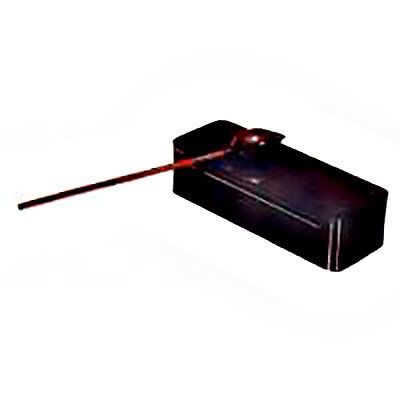bangzi overview
 Bangzi (pinyin: bāng zi), also known as bangban, is a Chinese percussion instrument. Around the late Ming and early Qing Dynasties (17th century) in China, it became popular with the rise of Bangzi Opera. The clapper consists of two solid hardwood rods of varying lengths and thicknesses. The one with a length of 25 cm is cylindrical with a diameter of 4 cm, and the other short and thick is a rectangle with a length of 20, a width of 5-6, and a thickness of 4 cm. One of the four tunes of opera, it is named after the hardwood bangzi strikes the festival. In 2008, it was selected into the second batch of national intangible cultural heritage list.
Bangzi (pinyin: bāng zi), also known as bangban, is a Chinese percussion instrument. Around the late Ming and early Qing Dynasties (17th century) in China, it became popular with the rise of Bangzi Opera. The clapper consists of two solid hardwood rods of varying lengths and thicknesses. The one with a length of 25 cm is cylindrical with a diameter of 4 cm, and the other short and thick is a rectangle with a length of 20, a width of 5-6, and a thickness of 4 cm. One of the four tunes of opera, it is named after the hardwood bangzi strikes the festival. In 2008, it was selected into the second batch of national intangible cultural heritage list.A ringer used by ancient patrols or yamen to collect and disperse people's knocks. Made of bamboo or hollowed out wood. The second chapter of "Water Margin": "In the front and back of Zhuang, Zhuangdong and Zhuangxi, three or four hundred Shijiazhuang households heard the sound of bangs, all dragged guns and sticks, gathered three or four hundred people, and all went to Shijiazhuang. "The Strange Situation I Witnessed in Twenty Years" Chapter 62: "The foreign trumpet outside is blowing again and again, and the footsteps of people come and go, and it is the bangzi who beats the clock again. Can't stop, how can I fall asleep." Ba Jin's "Sanding" 1: "The clapper of the second watch really rang, and the crisp wood sound answered each other in this quiet night with the two barks of the dog."
- Pinyin:bāng zi
- Classification:percussion
- alias:Bang board
- Intangible cultural heritage level:national level
- estate type:Quyi
overview of other similar instruments
- sanyanxiao overview
- Daguangxian overview
- Leiqin overview
- hahao overview
- yandundagu overview
- Han Xiaozheng overview
- Fang Xiang overview
- guanzi overview
- zhuqin (Dao Qin) overview
- zhuiqin overview
- bangzi overview
- three-stringed piano overview
- Gehu overview
- xiao overview
- xiaokonghou overview
- Konghou overview
- Sheng overview
- suona overview
- hulusi overview
- gushao overview
 渝公网安备 50010702504639号
渝公网安备 50010702504639号